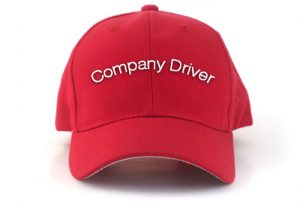As a professional driver, you enjoy the independence of the open road. No one peers over your shoulder at work, judging your every move. So you’re tempted to take one step further, into your own rig. But is that your best option? Owner operator vs. company driver: which offers the freedom and rewards you want?
Answer the following six questions to find the answer.
1. Owner operator vs. company driver – what’s the difference?
Company driver:
An employee who hauls freight with tractors and trailers provided by their employer, usually paid per mile driven. Some companies also guarantee minimum weekly pay to protect your earnings during wait times or breakdowns. Today’s market for professional drivers is fiercely competitive, so company drivers often are eligible for attractive sign-on bonuses and benefits packages.

Owner operator:
An independent business person who leases or purchases a tractor, and then contracts to haul loads for a trucking company. Owner operators generally earn higher per-mile rates than company drivers, or a percent-of-load rate. Although they make more income per load, they also must pay all the expenses of operating a truck and business. Furthermore, owner operators are on their own when it comes to waiting or breakdowns, finding health insurance – and just about everything else.
Owner operators are free to operate as they choose and aren’t subject to forced dispatch. However, they must contract for enough loads, at high enough rates, to both cover expenses and make a living. They assume all the risks and responsibilities of business ownership. With hard work and discipline, you may earn more money as an owner operator vs. company driver – but you’re at risk of losing what you make, too.
Company drivers are free of the burdens of ownership. Once home, a company driver leaves the hassles of the job behind. Someone else pays for the truck, schedules maintenance and finds the next load. Company drivers’ paychecks and free time are their own, to spend as they choose.
2. Do you love driving – AND the business of driving?
Successful owner operators aren’t lone wolves, free to roam the roads. They’re knowledgeable, disciplined business people – dedicated to their work 24/7.
If you’re excited by the prospect of becoming an entrepreneur, then be prepared to learn everything about trucking. You’ll be responsible for keeping your tractor, books and business in order as well as for building relationships with vendors and potential clients. Above all else, working harder and smarter is the key to earning more.
Do you prefer the security of a steady paycheck, letting someone else suffer trucking’s maintenance, marketing, financial, legal, regulatory and administrative headaches? Do you look forward to relaxing on your breaks and days off? Then you may find more freedom in the right company driver job.
3. Are you and your family in good shape?
If you get sick while you’re on the road, who delivers your freight? How do you find your way home in the event of a family emergency?
If you have to hurry back home, you need someone to take care of your truck and load. When you’re an owner operator vs. company driver, that “someone” isn’t easy to find. What are the odds of an emergency? If they’re above average, then you may be better off driving for a company known for supporting drivers in times of crisis.
Staying healthy may be less expensive as a company driver, too. Owner operators have to find and pay for their health insurance plans. They generally don’t have access to the lower-cost, company-subsidized group plans available to company drivers.
4. Are you and your family financially prepared?
Everyone benefits from disciplined spending and a high credit score.
However, prospective owner operators absolutely must get their financial houses in order. If you’re considering the path of owner operator vs. company driver,
- Reduce or pay off your debt. You need a strong credit rating to buy or lease your truck at a reasonable cost.
- Build a healthy savings account, too. It should be large enough to cover a down payment and other start-up costs. Also, be prepared to supplement your earnings in the early days – you may not receive your first check for two or three weeks.
- Learn to live on a budget. Know all your family’s expenses and how much income you need to cover them. Don’t forget: that income needs to arrive BEFORE your bills come due.
- Develop a realistic business plan. (Use all the data you gather under Question 5 below.) Can you make enough to support yourself and your family as an owner operator vs. company driver? Is this an opportunity worth the investment and sacrifice it requires?
Before you finish your business plan, you’ll need to choose which sort of owner operator you’ll become.
Lease operators:
Lease their tractors from a trucking company, and then contract to haul that company’s freight. The upside? It’s easier to get your hands on a truck and a load.
Research carefully before pursuing this option, however. The trucking company for which you’re hauling is your lender, too. Can you trust them to give you (rather than their company drivers) enough business to make a profit – or are you on the hook for lease payments that may exceed your earnings?
Lease-purchase operators:
Purchase their trucks independently or lease them through a third-party leasing company, and then contract to haul a single trucking company’s goods.
Owner operators usually prefer the financial independence of this arrangement, as opposed to being a lease operator. It offers easier access to loads than that of a self-employed independent contractor, too.
Just be sure you can count on getting lots of miles at a reasonable rate. Otherwise, after paying expenses, you could end up making less as an owner operator vs. company driver. Be sure you’ll be happy with the loads and routes you’re most likely to drive, too.
Self-employed independent contractors:
Genuinely are their own bosses. They own their equipment and book their loads. They enjoy the freedom to choose the routes and loads they drive, too. Of course, they also have to find, price, book and drive every trip (and return trip, too).
5. How long have you been driving?
If you’ve been a professional truck driver for fewer than five years, then your best choice might be a company driver job. Even if you ultimately decide to become an owner operator vs. company driver, this gives you a chance to
a. Spend enough time to know whether the trucking life is right for you
It’s easier to walk away from a job than from a substantial down payment and lease or loan obligations.
- Get a feel for how much home time you need. In theory, owner operators can choose to be home more. However, they make more per mile for long hauling. That’s why they often decide to spend weeks at a time on the road to cover their costs and increase their earnings.
- Understand how driving affects your lifestyle. A successful owner operator business requires lots of road time – AND lots of break time or home time spent taking care of business. Will family obligations pull you away from work? Are you happily single – or in a stable relationship with a partner who’ll support the demands of an entrepreneurial business?

b. Learn as much as you can about the trucking business
Gather all the data you can.
- What’s your upside? How many miles can you travel in a week? How many loads can you pick up and drop off?
- What regions do you prefer to drive, and which offer the best opportunities?
- What loads do you hope to haul? Are you prepared to carry high dollar freight? Do you need more experience or qualifications? Should you learn more about hauling permitted loads or specialty goods?
- Log the costs you’d have to cover once you’re on your own: fuel, tolls, tags, licenses, maintenance, repairs, insurance, communication systems, fines, out-of-pocket expenses, your family’s benefits. Know what these costs will average per mile once you’re driving your new truck.
- Figure out what sort of equipment you’d need, and which upgrades you’d find worth the extra cost.
- Learn what you can about maintenance, safety, fuel efficiency, Department of Transportation (DOT) regulation, federal and state laws, permits, claim filings, taxes and recordkeeping. When you run your own business as an owner operator vs. company driver, you handle all of these areas on your own – or pay someone else to.
- Practice developing good relationships. Down the road, you’ll rely on your people skills to market your services, work with brokers and dispatchers or negotiate lower costs from vendors.
- Look for future partners: bankers, accountants, lawyers, other drivers.
- Talk about the business with owner operators you meet in the drivers’ lounge or at your current company. Ask how they got into the business – and what most surprised them. Discuss what it takes to be successful. (Some companies will review a driver’s experience and help them determine when they’re ready to become an owner operator.)
6. Are you driving for the right company?
Before you decide to strike out on your own, be sure you’ve tried one of the best company driver jobs available in today’s market. Only then will you know whether you’d be happy earning more by hauling bigger, more specialized loads – without taking on additional financial, marketing and administrative responsibilities.
- Is your employer’s package competitive: great pay, benefits and working conditions?
- Are you paid more based on skill and industry experience, or solely on seniority? Look for a good career advancement program that offers rewarding growth opportunities.
- What are your company’s top mileage rates? What do its leading company drivers earn per year?
- Experienced drivers know you’ll spend a surprising amount of time waiting: for weather, traffic or breakdowns to clear, and for loading or unloading. Are you guaranteed a daily or weekly minimum? (You won’t be if you’re operating your own business.)
- Are you assigned your own cab, or does slip seating force you to share it with an irresponsible slob?
- Are you driving safe, comfortable, well-maintained equipment of which you’re proud?
- Can you share the road with your partner or another rider? At what cost?
- Does your company respect its drivers? Is that reflected in your pay, benefits, company policies and the way the dispatcher treats you?
To sum it up
In the final analysis, you drive for the money, the freedom and much more.
Owner operator vs. company driver – when you understand why YOU drive, you’ll make the right choice.
If you’re new to OTR trucking, you’ll make a better decision with more experience. It’s probably best to learn the ropes as a company driver before taking on the significant financial obligations of an owner operator.
If you’ve been driving OTR for more than five years, then you know what you love about the truck driving life. You’ll find there’s plenty of room to grow as a professional company driver: hauling larger loads, developing specialized skills, earning better pay. Working for the right outfit, you have the freedom to tackle all the rewarding challenges you want.
That’s very different from confronting the challenges facing a small business person as an owner operator vs. company driver. One man’s entrepreneurial dream in another’s nightmare. (For a realistic view, see this Popular Mechanics article.)
We leave you with one critical piece of advice, no matter which route you choose. Always Partner With A Good Carrier. It pays to drive for the best!